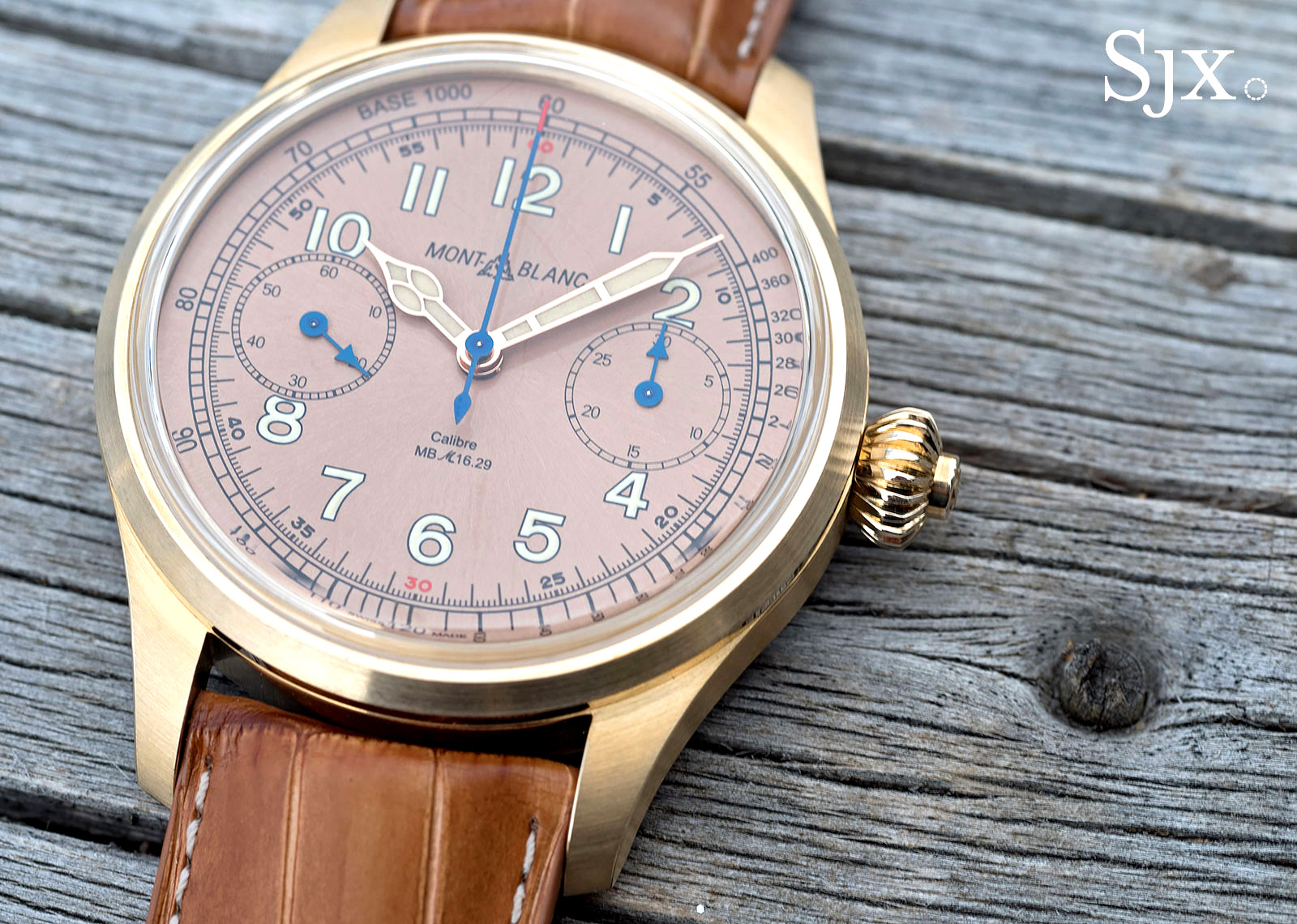Hands-On with the Montblanc 1858 Chronograph Tachymeter Bronze with Salmon Dial
An oversized vintage-inspired chronograph dressed for modern tastes.
Introduced first in steel and then in bronze with a champagne dial, the Montblanc 1858 Chronograph Tachymeter in bronze was a hit, combining retro-aviation styling with everyone’s favourite oxidising alloy. Now Montblanc brings us part two, with the same bronze case and top class movement, now fitted with a salmon dial.
The dial has a radial, brushed metallic finish and a dark salmon finish. Popular today amongst aficionados for being unusual and vintage in style, salmon is a gentle yet striking colour that is quickly noticed on the wrist.
The combination initially seems odd, since bronze is usually paired with green or blue dials, but it works. The salmon dial, blue hands and greenish Super-Luminova make for an appealing retro-flavour look.
At 44mm in diameter the case is large, a property accentuated by the narrow bezel and closely-set lugs. The size is intentional as the design is inspired by 1920s Minerva wristwatches that were converted pocket watches, but it also means the watch feels big on many wrists.
Like many other retro-inspired watches, the 1858 in bronze has a domed, “box-shape” sapphire crystal
Made up mostly of copper with a healthy dose of aluminium, the bronze case starts with a bright gold finish when new, but oxidises to a muted, more brownish tone over time. This changeable surface has made bronze the flavour of the day for watch cases.
While the case material and dial colour are faddish, the movement is old school watchmaking. The MB M16.29 inside is based on an chronograph movement conceived in 1929 – the calibre name is a contraction of “16 lignes 1929” – and originally designed for a pocket watch, hence the large size.
While innovation is not a strong suit of the movement, classic good looks and traditional finishing are.
Like all of Montblanc’s Minerva movements, the MB M16.29 retains its the classical construction, including the screwed balance and elegantly shaped chronograph levers.
The finishing is impressive and detailed – notice how the teeth on the barrel ratchet wheel are individually polished – with flourishes like a sharp-tipped arrow shaped like the Minerva logo that forms the tail of a chronograph lever.
Price and availability
The 1858 Chronograph Tachymeter in bronze with a salmon dial (ref. 117064) is priced at US$27,500 or €27,500, exactly the same as the earlier version. It’s limited to 100 pieces.
Back to top.